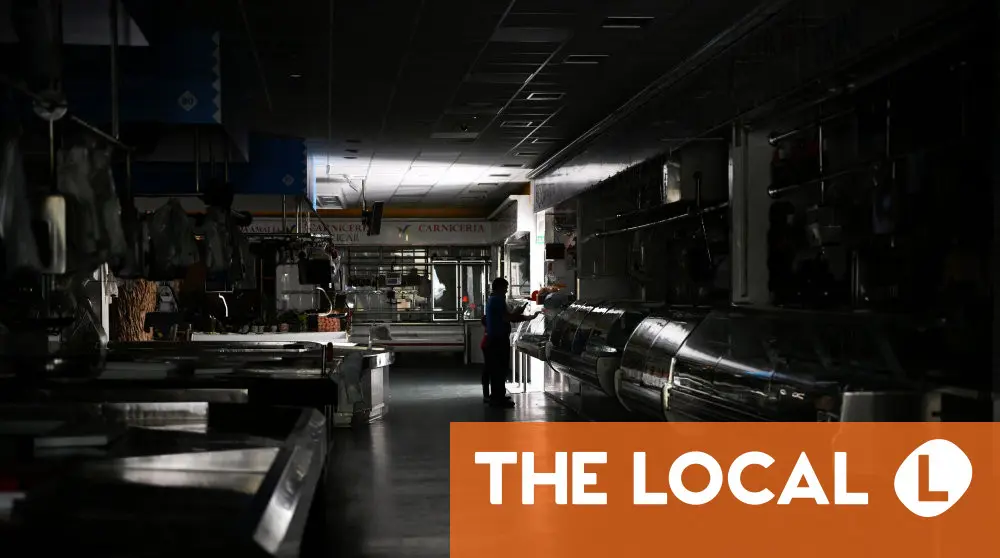Spain, Portugal and parts of France were hit by a huge power blackout earlier this week, causing major disruptions. How badly would Denmark suffer in such a situation?
The executive director of the Danish Emergency Management Organization (Danske Beredskaber), a national association for municipal emergency services, says that a power outage of the magnitude which hit Spain and Portugal this week would cause severe problems in Denmark.
Denmark is not sufficiently prepared for a similar scenario and would experience chaotic consequences similar to those seen in the two Iberian countries, Bjarne Nigaard said.
The organisation laid the potential for such a situation bare in a statement on its website, writing “imagine if all the power suddenly disappeared leaving no way to contact your family, no running water, traffic at a standstill, and your freezer shutting down.”
“Doors become locked at workplaces trapping people inside, while hospitals, factories, farms and power stations go dark,” it continued, adding that “many people” in Spain, Portugal and France experienced this type of situation during this week’s power cut.
READ ALSO: Candles and radios in demand in Spain as blackout lessons sink in
Denmark needs better crisis management planning and a single point of responsibility in order to give it the best chance of responsibility in such situations, according to Nigaard.
“In Denmark, we operate with what’s known as the sector responsibility principle, meaning the same entity that handles a task in normal times is also responsible during a crisis,” he explained in the statement.
Advertisement
“But the problem is, no one really knows how that should happen, or how quickly, because there are no common rules across sectors. And we also don’t know whether the sectors that rely on a crisis-hit sector would be able to cope on their own for the necessary period. No one has checked whether they can,” he said.
The various sectors referred to by Nigaard in the statement refer to essential public services such as electricity, water, heating, healthcare, food supply, and transport.
There are currently no standardised frameworks or emergency plans detailing how long these sectors should be able to operate on things like backup generators, he explained in comments to the Ritzau newswire.
That could result in several sectors “capitulating”, he said.
“Denmark is a well-functioning machine, but if the gears don’t align at the right moments, the machine stalls,” he told Ritzau.
A major blackout in Denmark would make it difficult to access water or refuel vehicles, for example, because water and fuel pumps typically rely on electricity.
Advertisement
“Trains and traffic lights would stop working and chaos would ensue. Many people would be stuck in the Metro or in lifts,” he said.
Denmark’s minister for national security and disaster contingency, Torsten Schack Pedersen, said the scenes in Spain demonstrate how crucial electricity supply is in a digitised society.
“Fundamentally, Denmark is a very robust and resilient society. But the reality we’re facing is becoming more challenging. There are risks we need to get better at managing,” the minister said in comments to TV2.
CHECKLIST: The emergency supplies Denmark advises you to stock up on
Authorities in Denmark last year issued advice for the general public to have certain supplies at home so that they are prepared in the event of a crisis.
The general population should stock up on enough supplies to last them three days should a crisis hit, according to the Danish Emergency Management Service (DEMA).
The type of events that could be the cause of such situations can include natural events like extreme weather or human acts like cyber attacks or sabotage, DEMA said at the time.
